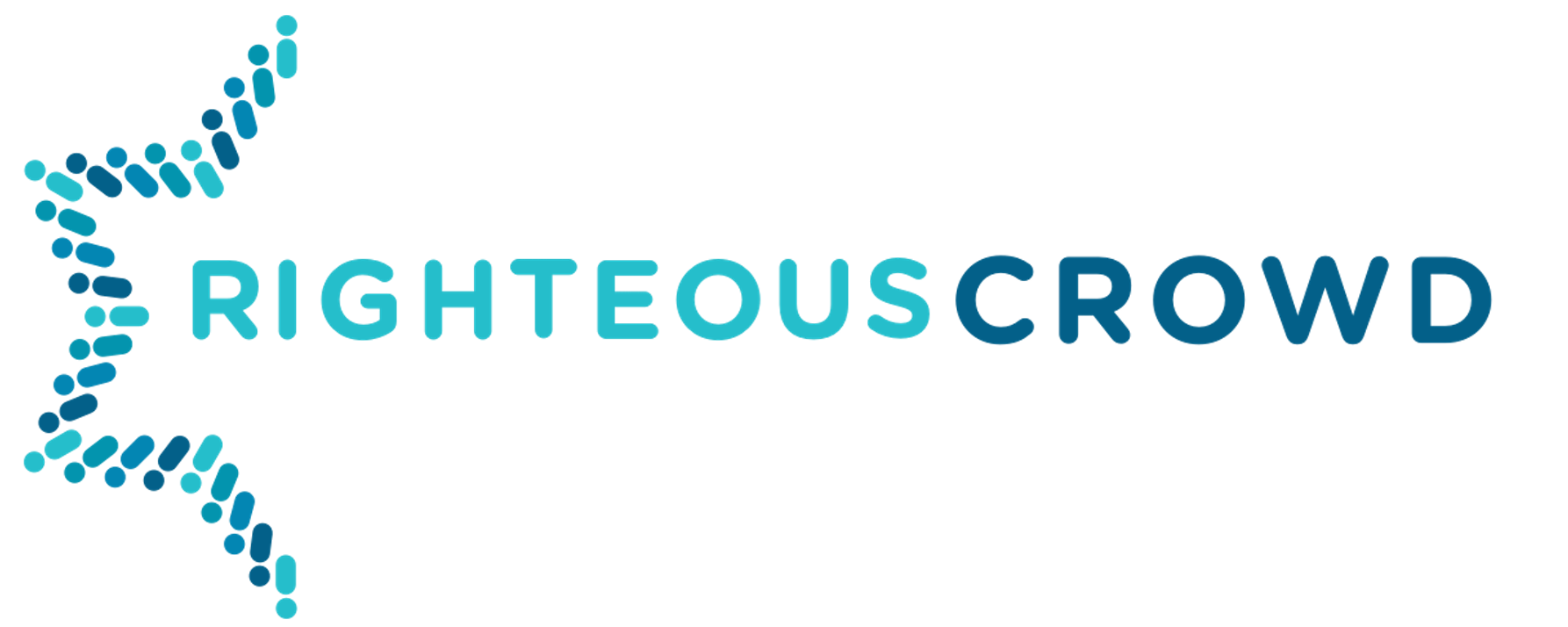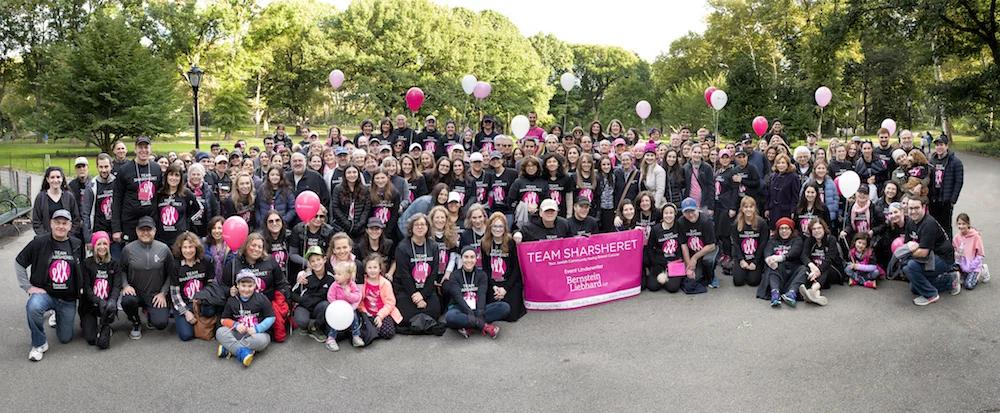Elana Silber, Executive Director of Sharsheret
“Saving one life is like saving an entire world. That’s what Sharsheret is all about.”
What is the mission of Sharsheret?
Sharsheret's mission is to offer a community of support to women, of all Jewish backgrounds, diagnosed with breast cancer or at increased genetic risk, by fostering culturally-relevant individualized connections with networks of peers, health professionals, and related resources.
how did you first get involved with sharsheret?
Sixteen years ago, I went to hear the founder talk about Sharsheret as a new organization just getting started in the Jewish community. She explained that breast cancer and ovarian cancer are not Jewish women's issues, they are Jewish family issues and Jewish community issues. As a young Jewish woman, with a background in health care and strong connections in the Jewish community, I just had to get involved. I started as a volunteer that day and never left.
What has surprised you about working with your organization?
I am surprised that Sharsheret is not a sad place to work. While the work we do is serious, and we do have sad days, Sharsheret is a place that exudes energy, hope, and strength. Women are doing well and women want to give back. So much of the healing process is positive thinking and helping others. That is the Sharsheret, the chain of support, everyone of us is a link in the chain. Together we look towards a brighter future.
What's the best part of your job and why?
The best part of my job is hearing about the women and families we serve. Each week, our entire staff (almost 30 of us in five different states!) meet for a staff meeting and we start with a story about someone and their Sharsheret experience that week. And it always starts the same way. This is how Sharsheret improved a life or saved a life. What could be more rewarding? Saving one life is like saving an entire world. That's what Sharsheret is all about.
How would you connect your organization to a Jewish text or holiday?
1. Jewish text - VeNiShmartem Meod LeNafshotheichem (Devarim 4:15) Guard your health. We don't necessarily have to wait for cancer to strike. There are things we can do to protect our health. It is imperative that we understand the signs and symptoms for breast and ovarian cancer, go for annual exams, including sonograms and mammograms after age 40 and annual physical exams, and to know our own bodies. Additionally, 1 in 40 Ashkenazi Jews (men and women) carries a BRCA gene mutation, as compared to one in 500 in the general population, making Jewish families at 10x greater risk for hereditary breast, ovarian, pancreatic, prostate, melanoma, and male breast cancer. With genetic counseling and genetic testing, we can find out our genetic status and take measures to protect our health. We can prevent cancer or diagnose it in its earliest stages when it can be cure. 2. Jewish holiday - Sharsheret's signature outreach and education program is called Teal/Pink Shabbat, where we take the Shabbat experience and educate thousands about breast cancer and ovarian cancer in synagogues of all denominations and on college campuses.
Who or what has inspired you in the work that you are doing?
Every day I am inspired by the thousands of women and families who connect with Sharsheret. There isn't a day that goes by that we don't get a thank you and a call from a woman who wants to give back.
What’s a story about your organization that is meaningful to you?
A wonderful woman from Indiana, living with metastatic breast cancer, had heard about the special power and uniqueness of healing waters. She had never been to a mikvah (Jewish ritual bath) before, yet she felt compelled to connect with the healing experience of this mitzvah. She felt a strong desire to tap into the strength of Jewish women throughout history who have immersed in these waters. Her body bore the brunt of her illness; she had scars from the multiple surgeries that left her without a breast and she was visibly weak.
With the help of Sharsheret, this woman was escorted to the mikvah with love and support. With support from our staff and the utmost of privacy, she dipped her head beneath the waters and stayed submerged for several moments. When she reemerged, she began to sing Yedid Nefesh (Beloved of the Soul). This woman was an opera singer; a soprano. Hearing her voice reverberating off the mikvah walls was one of the most magnificent sounds ever heard. As she ascended the steps from the mikvah, she whispered, “For the first time in months, I feel hopeful. There is a plan.” This woman’s mikvah experience is just one of many stories where the women of Sharsheret gather strength from one another and the life-changes experiences you can only find in our Jewish community.
What are some non-monetary ways for others to get involved in your organization or cause?
Sharsheret has many volunteer opportunities, including a) sharing your story - if you are a women who has been diagnosed with breast cancer or ovarian cancer or carry a genetic mutation you can share your story with other women one-on-one in our national peer support network. You can also share your story on our online blog, in a video , on social media, and at live events. Health Care Professionals, family members, and community leaders are also sharing their meaningful messages through Sharsheret's platforms to educate and inspire. b) Introducing Sharsheret to your medical team by bringing brochures and materials to their offices. Sharsheret's psychosocial programs, patient navigation, resources, and helpful kits complement the medical professionals' care. c) Joining Team Sharsheret for walks and competitive races. d) Volunteer your time in one of our local offices - Los Angeles, CA, Hollywood, FL, Lincolnwood, IL, and Teaneck NJ. d) Hosting an outreach event or challah bake in your home. e) Signing up as a baker for the annual Thanksgiving Pies For Prevention international bake sale. f) Sharing Sharsheret's online posts with your network to share life saving information.
To learn more about Sharsheret visit www.sharsheret.org.


